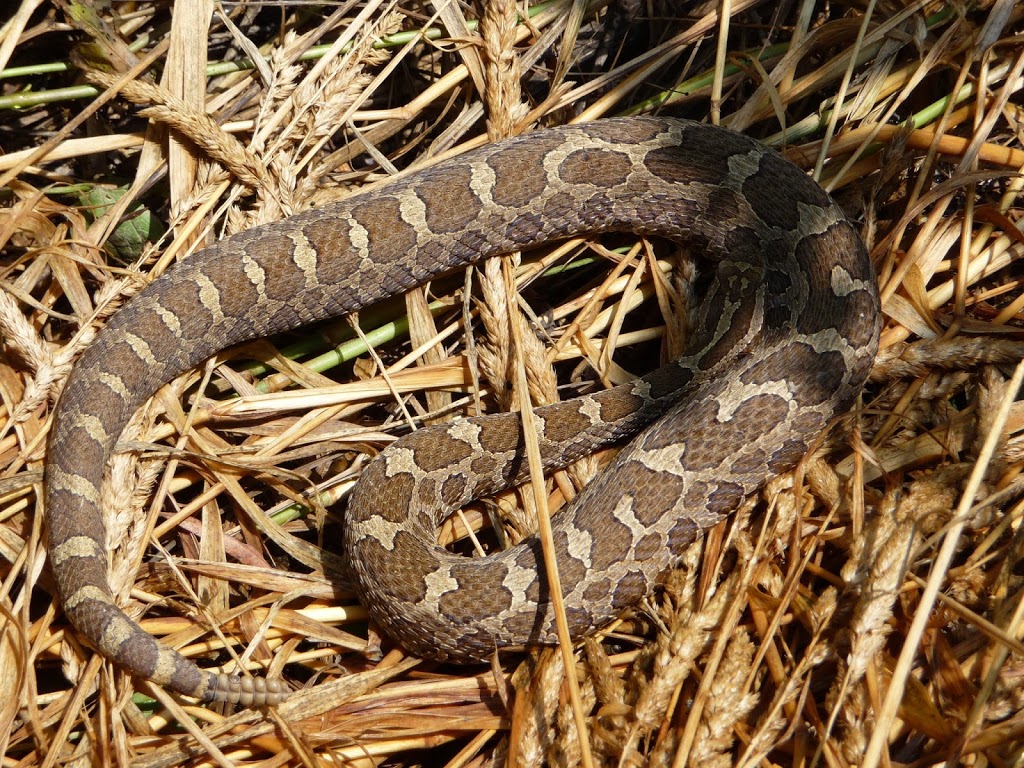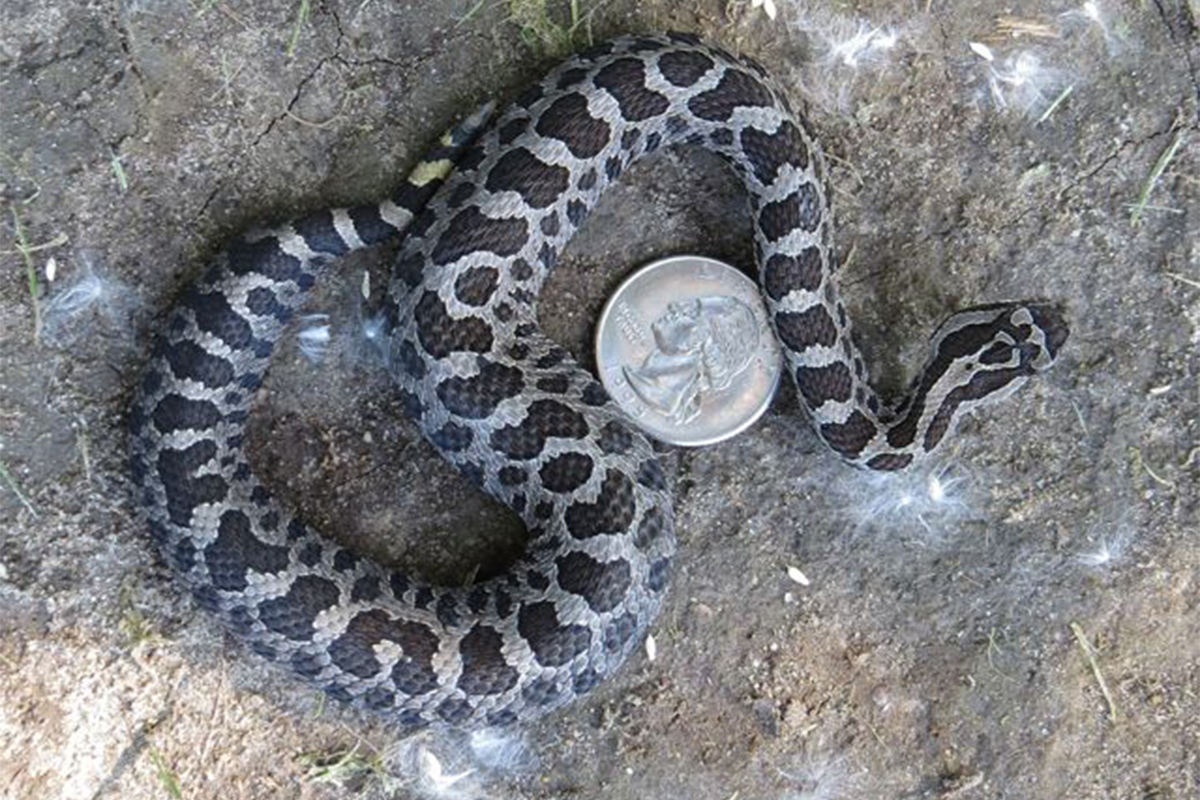Michigan's own native rattlesnake
The massasauga (eastern massasauga rattlesnake, Sistrurus catenatus) is Michigan’s only venomous snake. The adult massasauga can measure from 2.5 – 3 feet in length.
Where is the massasauga found?
The massasauga is native to the lower peninsula of Michigan and several other Great Lakes states. The U.S. Fish and Wildlife Service protects the eastern massasauga rattlesnake under the Endangered Species Act. The snake is listed as threatened because of loss of population throughout its range. The massasauga’s habitats include fens, wet meadows, and floodplain forests during the spring, fall, and winter. In summer they migrate to drier upland sites.
Is it true there are massasaugas living at Matthaei Botanical Gardens?
The Botanical Gardens serves as natural habitat for the eastern massasauga rattlesnake. There are a number of signs posted on the grounds to alert guests to the potential presence of the rattlesnakes. The massasauga can also be found in many counties of Michigan’s Lower Peninsula as well as several other states, including Ohio, Indiana, Illinois, Wisconsin, and parts of Ontario, Canada. While Michigan and other Great Lakes states are considered a stronghold for the eastern massasauga rattlesnake, the snake is still a rare sight for visitors to the Botanical Gardens.
What should I do if I see a massasauga?
The massasauga is a shy, timid snake that will usually flee if disturbed. They prefer to avoid contact with humans. If you do see one, please report the sighting to the front desk at Matthaei or fill out an observation report on the DNR’s website.
As with all wild animals, give the massasauga distance and respect. Do not handle the snake or pose with the massasauga for photo opp. Keep children at a safe distance and pets on a leash.
When hiking and exploring the grounds at Matthaei, use caution. Stay on the lawns and trails. Natural areas may contain unstable surfaces, rattlesnakes, poisonous plants, and stinging insects.
If you are bitten, stay calm and seek medical attention as quickly as possible. Up to half of all bites are “dry,” with no venom occurring.
Will the Botanical Gardens attempt to relocate or move the massasauga population?
No. The massasauga is listed as a “species of special concern” by the Michigan Department of Natural Resources, and is protected by state law. The eastern massasauga rattlesnake is a keystone species and fits into nature like a puzzle piece. Many animals depend on it for food, such as hawks, eagles, herons, and foxes. It also helps keep rodent and insect populations in check.

